Video on Demand has emerged as the present and future of the broadcasting industry, revolutionizing the way content is consumed. A compelling report by Conviva indicates a significant surge in VOD viewership, with a year-by-year increase of 155%. On average, viewers spend approximately 17.1 minutes per session engaging with VOD content.
In a recent survey conducted by Hubspot, it was revealed that video content is preferred by people over other forms of media, including infographics, blog posts, and emails. This highlights the growing significance and popularity of video as a preferred mode of communication and entertainment.
According to Cisco Systems, the proliferation of mobile devices is projected to reach 70% ownership among individuals by 2023. Consequently, there will be a doubling in demand for 4K/UHD video content, as mobile users seek high-quality visual experiences.
These compelling statistics clearly indicate the upward way of Video on Demand. It has become one of the most lucrative business ventures to explore. This article delves deep into what is a VOD Video on demand & VOD platform model, providing comprehensive insights into how businesses can capitalize on this flourishing trend.
Here are some important numbers that show how this trend is becoming more popular:
- Accordingly to the ResearchAndMarkets.com reported that the market size reached USD 53.14 billion in 2020. And then achieve a CAGR of 9.9% from 2021 to 2028.
- Streaming video consumption increased by 44% in Q2 2020, compared to 2019’s same period, as report by Conviva. The report also found that time spent streaming on smart TVs increased by 143% during the same period.
- In a survey conducted by Deloitte, In 2020, 56% of consumers in the United States subscribed to a streaming service. The survey also found that the average U.S. consumer subscribed to three streaming services.
These statistics make it clear that VOD is on the rise and is currently one of the most profitable businesses to explore. This article provides a detailed examination of the VOD platform model and how businesses can benefit from it.
What is VOD?
Video on Demand is a system that allows users to access video content at their convenience, rather than following a traditional broadcasting schedule. Viewers can select and watch their preferred content whenever they want, using devices such as smart TVs, mobile phones, and computers.
Video on demand allows for both free and paid content, with paid content usually requiring a subscription to services like Netflix, Amazon Prime Video, or Hulu. These services offer movies, TV shows, documentaries, and other types of videos. They have become more popular as technology has improved and people’s preferences have changed.
Additionally some VOD providers allow users to download content for offline viewing. With all these features, it’s no wonder why VOD has become so popular in recent years!
VOD Meaning
Video-on-demand (VOD) is an advanced technology that enables the instant delivery of video content, ranging from movies to TV series, directly to individual subscribers. It encompasses a wide range of user-requested on-demand video content, including premium movies, extensive TV show archives, thrilling sporting events, captivating concerts, and even user-generated videos.
To monetize VOD services, various models are commonly employed, such as pay-per-view, where viewers pay a fee for each specific piece of content they wish to access, and subscription models, offering flexible payment options like monthly, half-yearly, or annual subscriptions.
By leveraging VOD technology, viewers gain the freedom to choose their preferred content and consume it at their convenience, breaking away from the limitations of traditional broadcast schedules. This has transformed the way entertainment is accessed and enjoyed, providing a personalized and immersive viewing experience.

Unlike traditional broadcast or cable TV, viewers have the freedom to choose what they want to watch at their convenience, without being constrained by specific airtime or channels.
With VOD, viewers can browse different media libraries and stream the content of their choice with just a few clicks, making it much more convenient than traditional broadcast TV and providing a far more personalized experience.
Looking to develop a video on demand platforms? Talk to our VOD experts
What Users Look in VOD Services
With the increasing demand for video streaming services, it’s crucial to know what users desire when using video-on-demand platforms. The passion for personalized, accessible, and portable on-demand video content among users is ever-growing.
Choosing a video streaming service heavily depends on the price. In fact, a Nielsen report from 2022 found that almost 85% of users consider cost to be “extremely” or “very important” when deciding on a streaming service.
In addition to the price, there are other important factors that users take into account, such as:
81% Ease of use – How fast can users find and watch the content they want?
79% Content variety – Does the service offer a wide variety of content that suits users’ interests?
77% Streaming quality – Is the video free from buffering or other technical glitches?
74% Menu selection – Does the video play smoothly without buffering or other technical problems?
It’s clear that users don’t just consider pricing when choosing a VOD platform. To create a successful vod platform, it’s essential to provide an excellent user experience.
This means having a platform that has a user-friendly interface, high-quality video streaming, and a diverse range of content to ensure a smooth and enjoyable user experience.
Whether you’re in the entertainment industry or an entrepreneur planning to create your own VOD website, understanding what users want is essential to your success.
Why is VOD important in 2023?
It has become increasingly important in 2023 due to the changing landscape of entertainment consumption. With more people relying on streaming services for their entertainment, it offers an important alternative to traditional TV.
Recent research shows that 77% of customers in the United States are happy with the flexibility and selection offered by video-on-demand services, whereas only 34% are satisfied with their current cable TV subscriptions.
VOD is a convenient and affordable way to access content from various sources, such as movies, TV shows, music, and more. It enables users to watch whatever they want, whenever they want, giving them the freedom to enjoy their favorite content without the constraints of set schedules or commercial interruptions.
Video on demand is a way to watch exclusive shows not available on regular TV. It’s convenient and flexible, and very important in the entertainment industry today.
How Does Video On Demand Work?
Unlike traditional broadcast or cable TV, video on demand operates by transmitting data packets from servers hosting video content to your video player. This technology enables viewers to watch TV shows, movies, and other video content at their own preferred time.
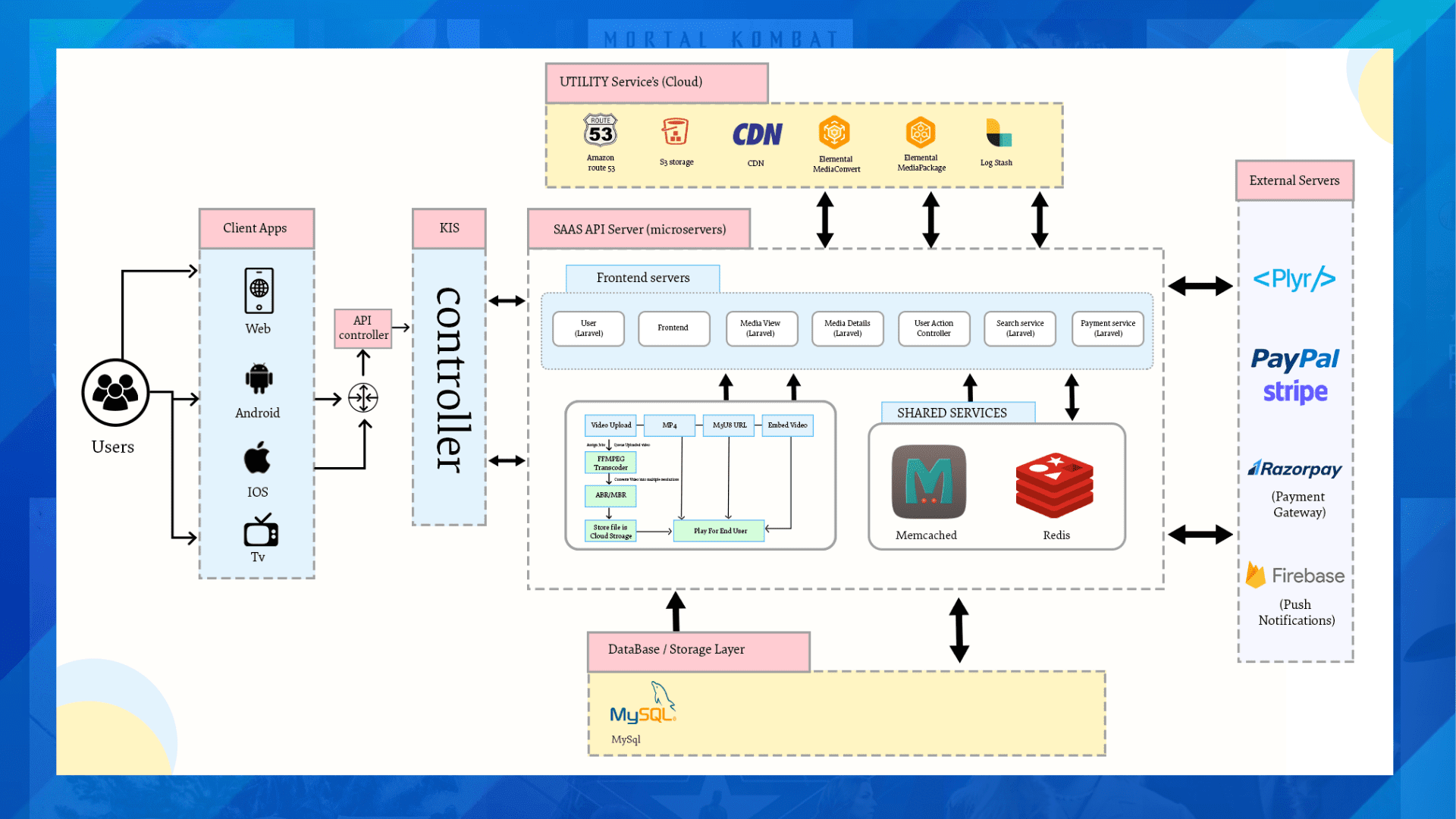
The process of how a Video on Demand platform works involves several complex steps.
- To watch a video whenever you want, you have to make it digital and keep it safe on a special server.
- Then, you make the video smaller and send it fast through the internet or cable to whoever wants to watch it.
- They get it and put it on their own device.
- After that, they can control how they watch it, like starting or stopping it whenever they want. This makes it more personal for them.
This way of watching videos gives you really good streaming quality. That’s why people like it so much – it makes them feel like they’re really a part of what they’re watching.
How does VOD make money?
As mentioned earlier, Video on Demand (VOD) refers to the delivery of video content in response to user requests. It involves sending data packets from a server hosting the video content to an advanced video player. Top video on demand platform providers and services aim to generate revenue through two primary models: advertising video on demand (AVOD) and subscription video on demand (SVOD).
In the AVOD model, providers create compelling video content and monetize it through advertisements. Viewers can access the content for free but are required to watch inserted ads during their viewing experience.
The SVOD model involves viewers subscribing to a video service for a specific period, such as weekly, monthly, or yearly, in order to access the content. Once subscribed, viewers can enjoy unlimited content from the platform’s video library. Subscription plans are typical to set auto-renew and the viewers will easily cancel it.
These two models, AVOD and SVOD, form the basis of monetization for providers in the VOD industry.
The data packets are uploaded from servers and delivered to a user’s advanced video player. VOD providers have two main models by which they can generate revenue: VOD advertising and subscription video on demand .
Read more : How to start a VOD website like Netflix?
Different types of VOD monetization models to choose
Choosing the right VOD monetization model is a crucial component of monetizing your video content. There are three main monetization models commonly used by Video businesses:
- SVOD
- TVOD
- AVOD
Each monetization model has its own benefits and drawbacks, which makes it important to select one that aligns with your business objectives.
SVOD
What is SVOD? Subscription video on demand has emerged as the preferred monetization model for content creators across various genres, enabling them to showcase extensive video libraries. In this model, viewers opt to subscribe to a video service for a specific duration, such as weekly, monthly, or yearly, granting them access to its vast collection of content.
Once viewers have made their payment to the SVOD platform, they gain unlimited browsing privileges within the platform’s online video library. Subscription plans are typically set to auto-renew and can be easily canceled at any time by the viewers themselves. Prominent examples of SVOD platforms include Netflix, Hulu, Amazon Prime, and others.

Read more: How do “SVOD” platforms create more income in streaming video content?
TVOD
Transactional video on demand (TVOD) operates on a pay-per-view system, making it ideal for highly popular videos with limited libraries. In this model, viewers have the option to purchase or rent digital copies of specific content they wish to watch.
We can further categorize the TVOD business model into two types: Electronic Sell Through (EST) and Download to Rent (DTR). Under EST, viewers can gain permanent access to the content through a one-time payment. DTR allows viewers to pay a smaller fee for a predetermined period of time to access the content. Prominent examples of TVOD monetization models include Google Play, iTunes, and more.
AVOD
Advertising video on demand (AVOD) stands as another popular monetization model that relies on advertisements to generate revenue. In this model, viewers have the freedom to stream content for free; however, they are required to watch inserted ads during their viewing experience.
VOD ads are typically categorized into three types: Pre-roll (played at the beginning), Mid-roll (played in the middle), and Post-roll (played at the end). The AVOD business model proves to be lucrative, leveraging a substantial viewer base to generate significant revenue. Prominent examples of AVOD monetization models include YouTube, Daily Motion, and more.
In today’s fast-paced modern lifestyle, there is a need for a flexible system that caters to the viewers’ preferences. Video on demand (VOD) services offer enhanced accessibility to audiences while giving creators ample time to perfect their videos before releasing them.
Let’s explore some of the key reasons why businesses should consider using VOD for their growth:
Convenience:
VOD enables customers to consume content according to their preferences. There are no limitations on time or location, allowing viewers to watch as many videos as they desire. Unlike traditional broadcasting services, VOD apps are not bound by geographical restrictions, granting viewers the ability to stream content from anywhere in the world. Additionally, VOD businesses offer flexibility without contractual obligations, allowing customers to discontinue the service at any time.
Online Community and Passion:
With VOD, creators can build communities around their videos and the subjects they are passionate about. By creating original content on specific topics, they can bring together like-minded individuals who share an interest in those subjects. This fosters better engagement and a sense of belonging among viewers, ultimately leading to increased business success and earnings.
Source of Passive Income:
Establishing a video subscription platform provides a reliable income stream for service providers, reducing the need to acquire new customers on a daily basis. By leveraging their online community, creators can expand their customer base more easily. This allows them to invest more time and resources in creating high-quality content and positioning themselves as industry authorities. As a result, customers are more willing to pay a premium price for their offerings.
Control Over Content Variety:
With the best online video platforms, creators have complete control over their content. They can create videos on any topic for their desired audience without having to adhere to advertisers’ guidelines that may limit their creative vision. This freedom allows them to create and share videos authentically and connect with their audience on a deeper level.
Monetize Existing Fan Base:
If you have a large following on social media, you can direct them to your dedicated online space and convert your followers into viewers. As the number of viewers increases, the popularity and revenue of your business also grow.
Unlimited Customers & Accessibility:
Establishing a unified VOD platform ensures accessibility across various devices. Audiences can log into their from laptops, computers, or mobile phones with a single click, enabling them to stream their favorite videos seamlessly. VOD services can provide content to an unlimited number of customers, maximizing revenue potential.
Ad-Free Entertainment:
Nothing annoys viewers more than disruptive ads during video streaming. In fact, many viewers are willing to purchase premium memberships to enjoy ad-free content online. VOD services help businesses deliver a smooth, ad-free streaming experience, fostering loyalty among their audience base.

VOD Content Delivery Methods
Viewers can access their favorite TV shows, movies, and other video content through various methods, such as website and social media platforms hosting, as well as subscription-based services with diverse content collections.
It is a great way for businesses to provide their customers with the convenience of on-demand access to the content they love. It is important for businesses to have the right tools in place in order to make sure their customers have the best experience possible when accessing Video content. Having the right VOD delivery methods can enhance customer satisfaction and encourage them to stay loyal to your business.
Why Does Your Business Need VOD?
With Video on Demand, businesses can reach a broader audience than ever by streaming their content worldwide, with lively interaction through video. This eliminates the need for costly physical media like DVD and Blu-ray discs.
Read More : Netflix clone script to start your own VOD Platform!
VOD enables businesses to monetize their video content, generating revenue from it. It also gives them more control over their content by allowing them to choose the VOD distribution time and location.
Moreover, VOD enables businesses to track their viewers’ engagement with their content in real-time, which helps them to better understand what works and what doesn’t. This valuable vod marketing tool offers businesses of all sizes the potential for a wider reach, greater control and monetization options, and the ability to track viewership in real-time.
Read more : The New Million-Dollar Kid In The Block – VOD Solutions
Here are importance of VOD for your business and the benefits it can bring
Boosting Engagement
People really like watching videos, and with VOD (Video on Demand), they can watch your content whenever they have time. This is helpful for busy people who can’t watch at a certain time. Offering VOD means your audience won’t miss out on your content.
Targeting a Wider Audience
VOD lets you share your content on different platforms, reaching a bigger audience. This means more people can find out about your business, and you have a better chance of getting new customers who might not have heard of you otherwise.
Building Brand Awareness
Using VOD (Video on Demand) helps you promote your brand and let people know about your products or services. When you make videos that showcase what makes your brand special, it can draw in new customers and create loyal fans of your brand.
Establishing Authority
If you give useful information in your VOD content, people will trust your brand more. This can make them more likely to pick your business instead of others.
Showcasing Products or Services
VOD allows you to showcase your products or services in action, making it easier for potential customers to understand what you offer. By creating informative and engaging videos, you can increase your chances of converting viewers into customers.
Saving Money on Advertising
VOD is an affordable way to promote your business. If you make good videos that your audience likes, you can get new customers without spending a lot of money on ads.
Analyzing Performance
One of the biggest benefits of VOD is the ability to analyze your content’s performance. By using analytics tools, you can track views, engagement, and other metrics that can help you optimize your content and improve your overall strategy.
3 Important Tips to Get You Started
Start building your content library
The initial step in using Video on Demand is creating a content library. To do so, you must first select the content you wish to offer from a variety of sources, including movies, TV shows, web series, and more. After selecting your desired content, you can then decide on how to deliver it through options such as streaming services, downloads, and rentals.
Additionally, you can expand your content library by partnering with other platforms or distributors to add more content to your collection. Building a content library can be a time-intensive process, but it is essential for any successful VOD service.
Stream from your own VOD homepage
For those wanting to take their streaming experience to the next level, creating a homepage is the way to go. A homepage gives viewers the ability to stream their favorite videos directly from their own page. This page can be customized with different designs and features and can be used to create an engaging viewing experience.
Content owners and creators have full control over the content they share, allowing them to keep their libraries constantly up to date. By streaming from your own homepage, you can reach a wider audience and provide more options for viewers.
Keep your content library fresh
Keeping your content library fresh is essential for maintaining a successful VOD service. Updating your library with new and exciting content can help draw viewers in, as well as encourage viewers to come back for more. To make sure your library stays fresh and up to date, it is important to regularly check for new releases and add them to your catalog.

It is also important to monitor the performance of existing content and remove any content that is not performing well. Doing so will ensure your viewers are being given the best possible selection at all times.
What are the benefits of starting VOD?
In today’s digital age, video-on-demand services has become a vital part of our daily lives. With the increasing demand for online video content, it’s no surprise that more and more businesses are launching their own online video platforms. But what exactly are the benefits of starting a video service, and how can you ensure success in this competitive market?
The Growing Demand for Video Content
The popularity of video content has skyrocketed in recent years, with consumers now spending more time watching videos online than ever before. This is largely due to the rise of streaming services like Netflix, Amazon Prime Video, and Disney+, which have made it easier than ever for people to access the content they love from anywhere, at any time.
With the increasing demand for video content, there’s never been a better time to launch a VOD service. Not only is there a huge market for it, but there’s also plenty of room for new players to enter the field and carve out a niche for themselves.
Increased Revenue Potential
With more and more people turning to online video for entertainment, there’s a huge opportunity to tap into this market and generate significant income.
Whether you charge a monthly subscription fee, offer premium content for an additional fee, or sell advertising space, there are many ways to monetize your video on demand service and maximize your earnings.
The Ability to Reach a Wider Audience
Unlike traditional TV, which is limited by geographic location, a video platform service can be accessed from anywhere in the world with an internet connection.
This opens up a huge potential market for your business, allowing you to reach people from all walks of life, no matter where they are located. By offering high-quality content that appeals to a wide range of viewers, you can attract a loyal following and grow your business exponentially.
Increased Control Over Content and Branding
Starting a Video on demand service also gives you increased control over the content you offer and the branding of your business.
Unlike traditional TV, where you are limited by the programming schedule, with a video service, you have the ability to offer content that is tailored specifically to your audience.
You can also control the look and feel of your platform, ensuring that it aligns with your brand and appeals to your target audience. This level of control allows you to build a unique and recognizable brand that sets you apart from your competitors and attracts more viewers.
Convenient and Flexible Viewing Experience
You don’t have to watch your favorite shows at a certain time anymore. You can watch them whenever and wherever you want!
This level of convenience is incredibly valuable to consumers, who are increasingly looking for ways to watch their favorite content on their own terms.
Live Streaming vs VOD : What’s the difference?
VOD primarily focuses on providing access to pre-recorded video content. To maximize video monetization opportunities, it is advisable to record live streaming content for later availability through a VOD solution. By recording and distributing your content through VOD, you can broaden your audience reach and fully capitalize on monetizing your videos. Rather than pitting streaming against VOD, it is beneficial to leverage both methods for your video content strategy.
While incorporating both live streaming and VOD content into your business approach, it is crucial to select a streaming platform that can effectively support both distribution methods. Using a unified platform saves you time, money, and frustration that may arise from managing multiple distribution methods. This ultimately makes your job easier in the long run.
VOD and live streaming each serve a distinct purpose:
- Viewers are happy with VOD because it lets them watch content the way they like.
- If you need a good VOD platform for your content, Webnexs is the best choice for modern video streaming.
When combined, these features create an all-in-one package that allows viewers to interact with the service through live streams and video content in various ways.
CDN’s role in VOD performance:
It forms the primary infrastructure for delivering content over the internet and plays a crucial role in enhancing Video on Demand performance. As video content consumption accelerates drastically, there is a concurrent surge in demand for fast, reliable, and high-quality video streaming. CDNs overcome the challenges of latency and poor load times by deploying edge servers, delivering content closer to end-users, and optimizing data transfer processes.
How is CDN utilized for optimization?
Intrinsically, CDNs are networks of geographically distributed servers with the primary intent of delivering content to users from locations closer to them. These servers, physically situated nearer to the end users, are called edge servers. They cache content such as videos, images, and web pages, thereby reducing the distance data must travel from the source, i.e., the origin server. This is crucial, as the farther data must travel, the greater the latency and load times, which can result in slower performance on the end user’s side.
CDNs and VOD Performance:
Reducing latency:
The CDNs have been designed to work optimally even in locations devoid of feasible internet infrastructure. Latency reduction is a primary benefit, and this is enabled by strategically placing edge servers closer to the end users, thereby decreasing the delay in streaming video content. In locations where these servers are farther from the end users’ location, significant delays can be expected.
Improving load balancing:
For managing traffic efficiently without overwhelming a single origin server, CDNs distribute content across multiple servers, thus reducing load on one server and ensuring load is optimally balanced. This accommodative feature also extends to cover high-traffic sessions by continuing to deliver a seamless experience without bottlenecks for the end users.
Enhanced Scalability:
In order to handle the growing number of users, scalability has been imperative in designing a system of networks that can include an additional number of servers to handle increasing loads. While load balancing is objected to a limited scope for accommodating traffic, engaging a high number of users requires additional infrastructure to be able to handle an influx of users without affecting performance.
Content Caching:
As a key feature of CDNs, they cache videos on the edge server closest to the user. When the video is requested by the user in that vicinity, the content is delivered from the cached copy instead of being retrieved from the origin server, thereby reducing delay and bandwidth, and ensuring faster content delivery.
Higher Availability and Reliability:
Availability of content is enhanced since there are multiple servers distributed across various geographic locations. Requests can be effectively rerouted if the network slows down or technical issues arise. A redundant approach calls for utmost seamless delivery of content by ensuring minimal service interruptions.
While CDNs play a significant role in content delivery, how secure is the content transaction?
Security aspects are well-constrained into the system to offer an encrypted data transaction. Distributed Denial of Service (DDoS) protection, Transport Layer Security (TLS) and token-based authentication are incorporated to protect content from malicious attacks and ensure that unauthorized users cannot access restricted content.
Start Your VOD Journey With Webnexs
If you need a good VOD platform for your content, Webnexs is the best choice for modern video streaming.
Webnexs provides advanced features and monetization models that distinguish it from other streaming services. It offers several revenue options that make it easy to earn money through streaming.
Creating your VOD website with Webnexs
- click on Video Management Option -> Add New Video.
- When you click on the “Add Video” page, you’ll need to provide all the information about the video you want to upload to this platform.
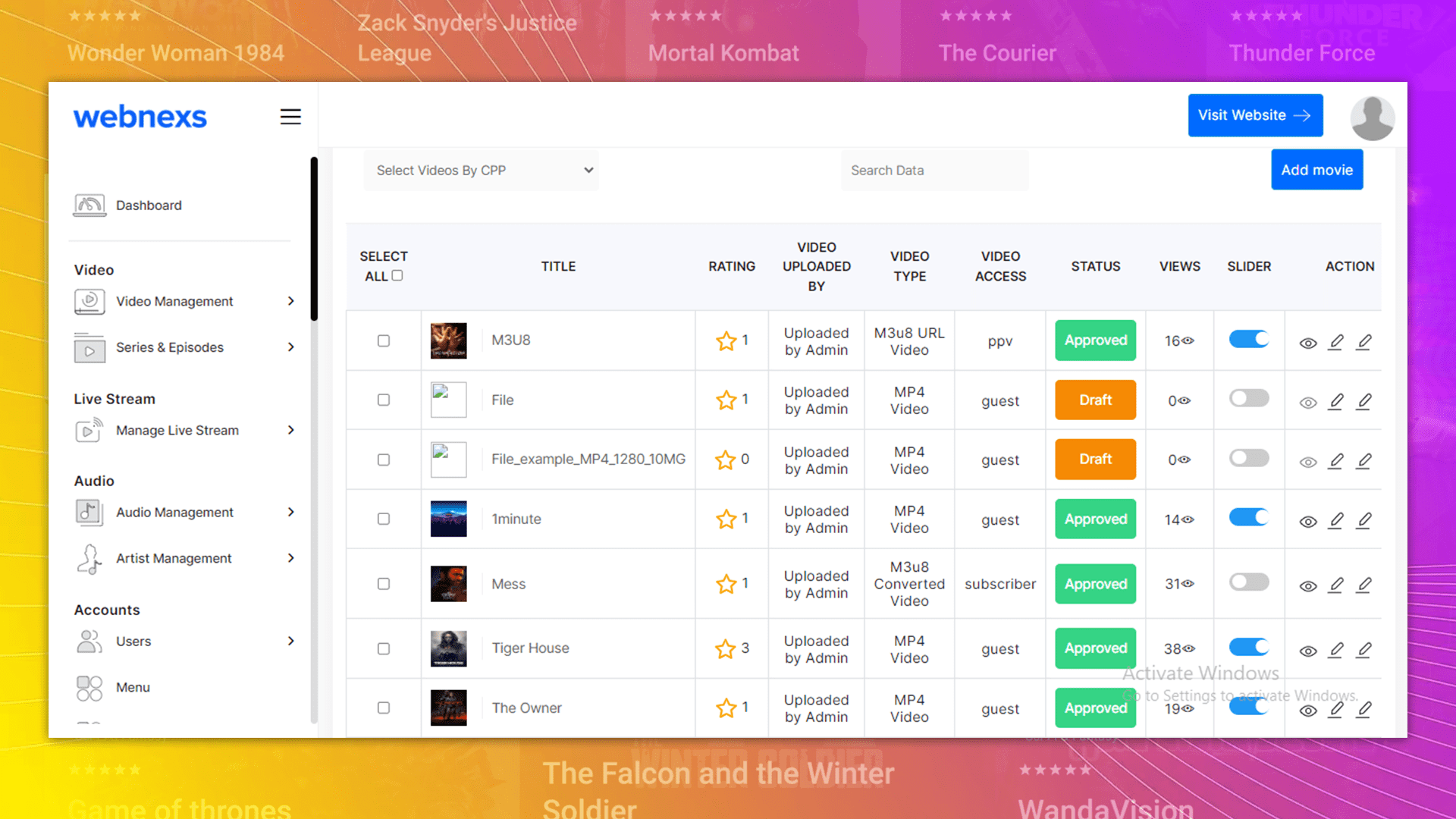
- There are four ways to add a video to this platform. If you want to upload a video from your computer to Webnexs, click on the “Video Upload” option.
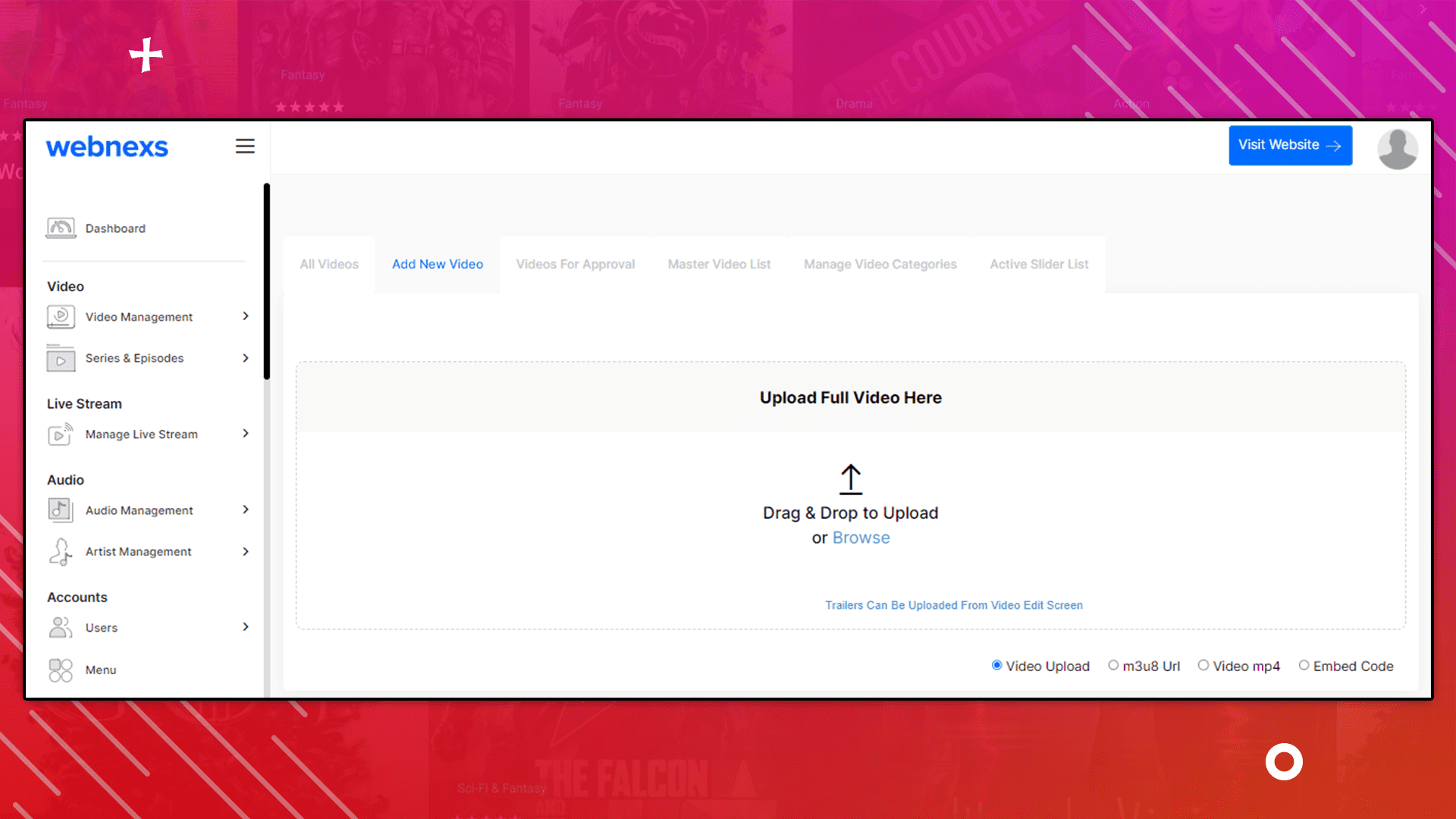
- Click on the m3u8 Radio button if you want to upload the m3u8 Format of the video into Webnexs. Add m3u8 Url in the Text box given and then click on Proceed to Next Step Button.
- Click on mp4 Radio Button, If you want to add the mp4 format of the video into Webnexs . Add the Mp4 URL in the Text box given and then click on Proceed to Next Step Button.
- Click on Embed Code Radio Button; if you want to add the video’s embed code into Webnexs. Add Embed Code URL in the Text box given and then click on Proceed to Next Step Button.
Under the “Video Manage” section, you can add details like the video’s name, slug, banner, and more.

Features Of a Good VOD(Video On Demand)
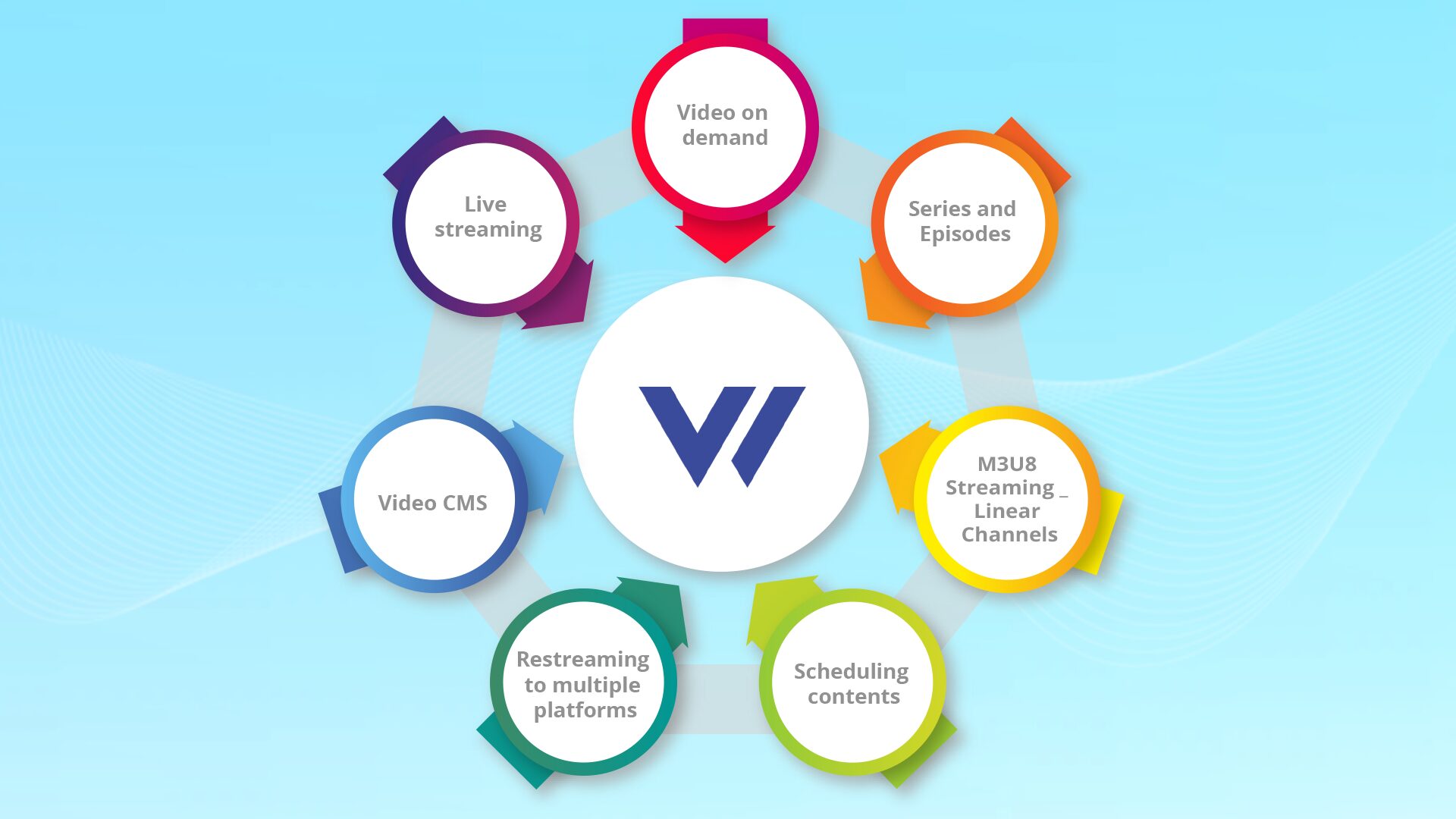
A high-quality video-on-demand (VOD) platform should have various features that give users a pleasant, hassle-free, and safe experience. To be successful, the platform should offer good streaming choices, adaptable pricing plans, content security measures, and easy-to-use interfaces.
Quality streaming ensures that viewers can access the content they want in the highest possible quality.
Flexible pricing plans give customers the option to choose the plan that best suits their needs, allowing them to pay only for the content they watch.
Content protection measures keep user data private and secure while also preventing piracy.
An intuitive user interface makes it easy for customers to quickly find and access the content they want to watch.
VOD services have features that make watching shows enjoyable for customers.
Video on demand
Subscribers can use VOD services to rent or buy TV shows, movies, and other videos from a library. The platform should provide multiple payment options for users to choose from, such as SVOD, AVOD, and TVOD. Users should be able to easily search for videos and access content quickly. The platform should have an advertising engine that can monetize the service.
Series and Episodes
It allows viewers to access a show’s entire season or series of episodes in one go. This feature helps to keep viewers engaged and makes it easier for Restreamto to find the content they are looking for. Users can also benefit from the convenience of scheduling the contents of their favorite shows so that they can watch them whenever they want.
M3U8 Streaming _ Linear Channels
M3U8 streaming is a great way to create linear channels, offering viewers the ability to watch content in real-time. It’s also an effective way to restream your content to multiple platforms. You can easily create an M3U8 media connection and stream your content to a third-party player, mobile app platform. Channels are easy to create and manage, making them a great option for those just getting started with VOD platforms.
Scheduling contents
Scheduling content is an important part of creating an VOD platform for your video streaming service. It allows you to plan and make sure that your viewers can always access the content they need. They can do manual scheduling, or you can set up automated systems to ensure that all your content is available at the right time. With the top VOD platform, you can also easily customize schedules for different platforms and devices, ensuring maximum reach for your content.
Restreaming to multiple platforms
Once you’ve set up your streaming platform, the next step is to get your content out to multiple platforms. With Restream, you can easily Restream your videos on YouTube, Twitch, and other platforms with ease. By streaming your content on multiple platforms, you can reach a wider audience and keep them interested in your content.
Read More: What is MRSS and Why it’s useful in VOD Solutions
Video CMS
The Video CMS feature is essential for organizing, managing, and streaming content on the go. It allows users to establish business rules such as scheduling video content and its availability in different regions. VOD makes it easy for people to find and watch videos by providing a simple and user-friendly interface to explore the video library.
Other important features:
- Ad-free Video Streaming
- White-label video streaming
- API And SDK access to support videos both on OTT and Mobile Apps
- Security options such as DRM Encryption and SSO
- Live-streamed videos are recorded and stored in the video library
- Content management system (CMS) for the organization of videos in different categories
- Content delivery network(CDN) for transferring videos to users without any issues
- Video is accessible on most the devices
- Infinite input source
Read more: Why Does Your Business Need a VOD Platform?
Conclusion
VOD changed how we watch stuff. It’s easy, lets you pick what you like, and suggests things you might enjoy. Lots of people use it, and it’s not going away. You can find new movies or old TV shows, VOD has it all.
It offers a convenient, flexible, and personalized way to watch your favorite movies and TV shows. If you’re looking for a way to cut the cord and enjoy unlimited content on your own terms? Request for a demo.
Frequently Asked Questions(FAQ)
1. what does vod stand for?
VOD means Video on Demand. It lets you watch videos when you want. You don’t have to follow a schedule. It’s like streaming, and you can watch on your own time.
2. How does VOD work?
Video on demand works like this: the video content is kept on a server and made available to users whenever they want it. If someone wants to watch a video, they ask for it and the video is sent over the internet to their device. They can watch it right away or save it to watch later.
3. What are the advantages of VOD?
There are many good things about video on demand. It’s convenient, flexible, and can be personalized. You can watch your favorite shows or movies whenever you want, on any device. You don’t have to wait for it to come on TV. VOD also lets you control how you watch – you can pause, rewind, or fast forward. That means you have more power over how you watch things.
4. What types of content are available on VOD?
Video on demand has lots of different things to watch, like movies, TV shows, documentaries, and more. Some VOD services focus on specific types of content, like sports or music, while others have a bigger variety to please more people.
5. How can I access VOD content?
You can watch VOD on different things, like special apps, smart TVs, gaming consoles, and web browsers. To use VOD, you usually have to pay for it by subscribing, but sometimes there are free things too. Before you watch anything, make sure your device can handle it and that you meet any requirements.

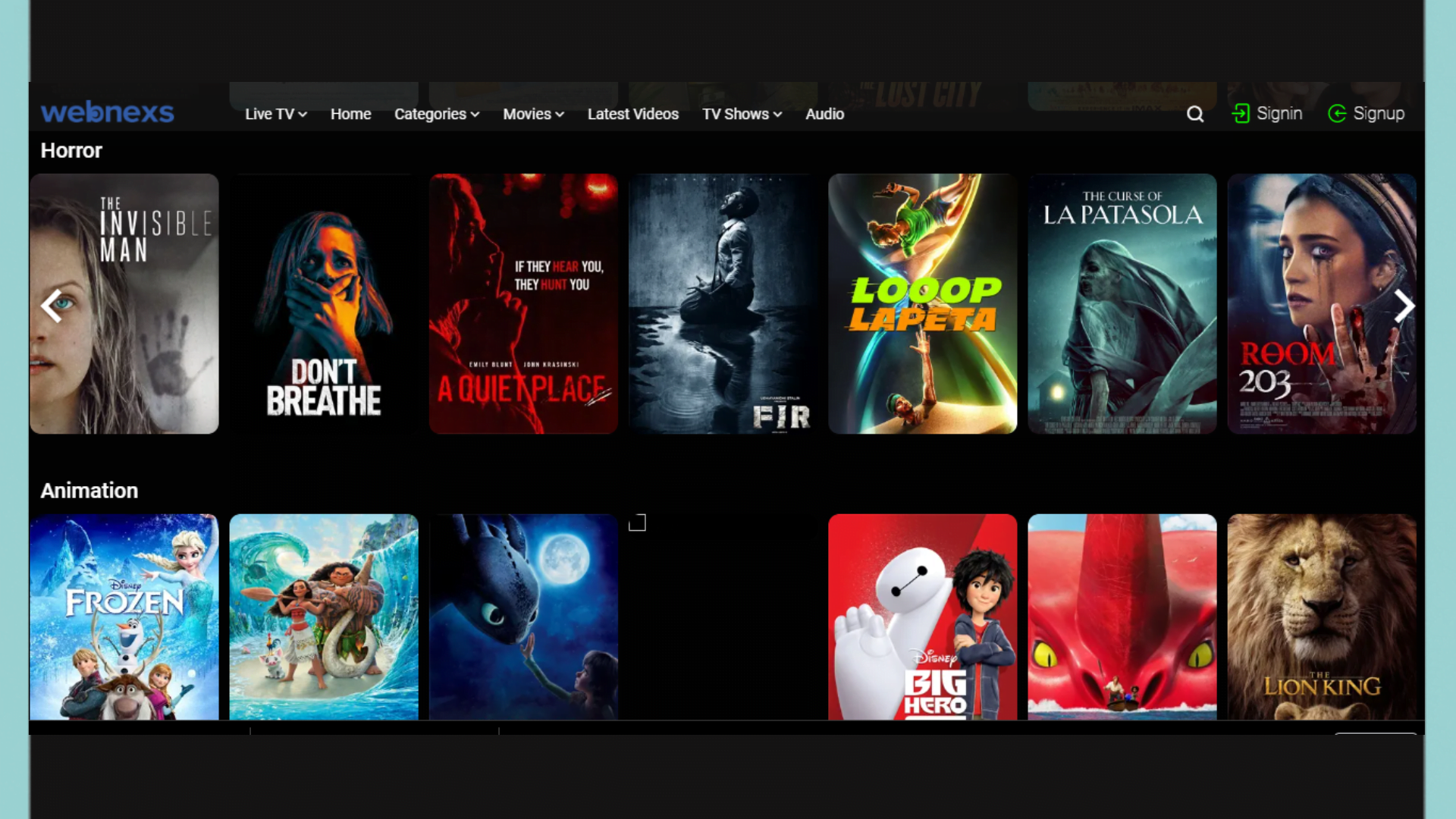

Leave a Reply to Michaelchick Cancel reply